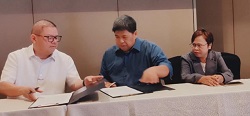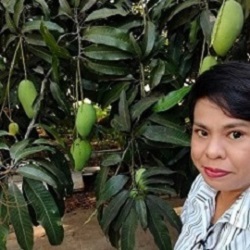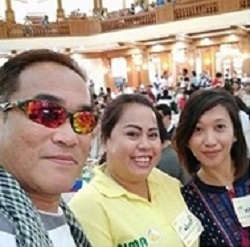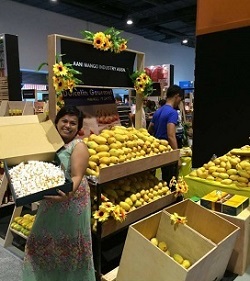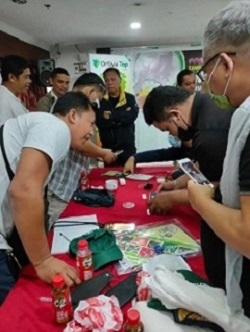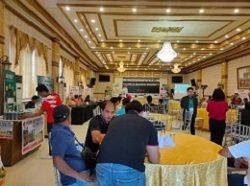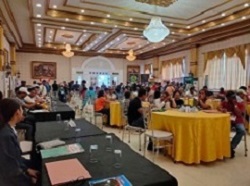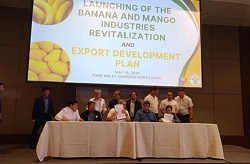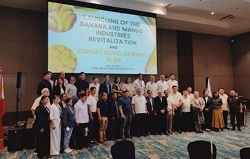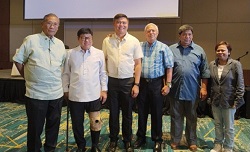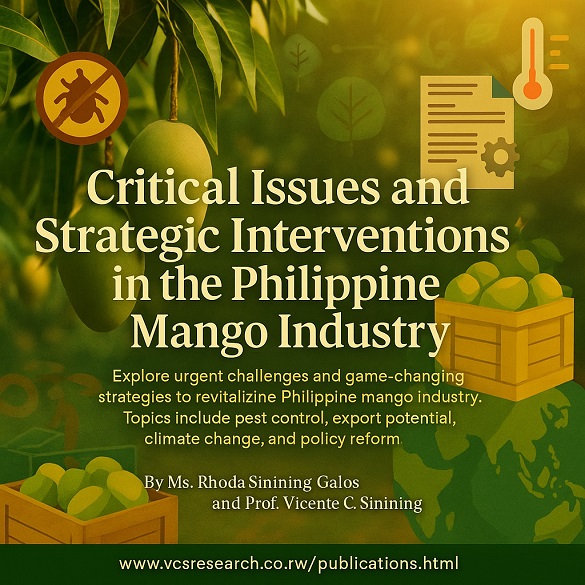
Abstract
The Philippine mango industry, renowned for its 'Carabao' variety, plays a significant role in the country's agricultural exports. Despite its prominence, the industry grapples with multifaceted challenges that hinder its growth and sustainability. This paper examines the critical issues affecting the Philippine mango sector and proposes strategic interventions to address these challenges.
1. Introduction
Mangoes are integral to the Philippines' agricultural landscape, with the 'Carabao' mango recognized globally for its sweetness and quality (Sacramento & Cuizon, 2020). However, the industry faces numerous obstacles that threaten its viability and competitiveness.
2. Critical Issues in the Philippine Mango Industry
2.1. Pest Infestations and Diseases
Pests such as the mango cecid fly and diseases like anthracnose significantly reduce yield and fruit quality. These infestations also affect exports due to phytosanitary standards (CIRAD, 2023).
2.2. Climate Change and Environmental Factors
Erratic weather patterns and typhoons disrupt flowering and fruiting cycles. These climate issues exacerbate pest outbreaks and impact mango productivity (Nipino, 2024).
2.3. Aging Tree Populations and Low Productivity
Many orchards have old trees with declining yields. The absence of rejuvenation programs and poor adoption of modern techniques worsen the problem (CIRAD, 2023).
2.4. Post-Harvest Losses and Infrastructure Deficiencies
Improper handling and lack of storage infrastructure lead to significant losses and reduce export quality (Sacramento & Cuizon, 2020).
2.5. Market Access and Value Chain Constraints
Smallholder farmers struggle to access profitable markets. Weak cooperatives and intermediary-dominated supply chains reduce producer profits (Briones, 2014).
2.6. Governance and Policy Implementation Gaps
While policies exist, weak coordination and inconsistent implementation limit impact. A national strategy is needed (Sacramento & Cuizon, 2020).
3. Recommended Actions and Solutions
3.1. Integrated Pest Management (IPM) Programs
IPM strategies using biological controls and proper cultural practices can manage pests sustainably (CIRAD, 2023).
3.2. Climate-Resilient Farming Practices
Agroforestry, drought-resistant rootstocks, and mulching can help mitigate climate impacts (Nipino, 2024).
3.3. Orchard Rehabilitation and Replanting
Rejuvenation programs should promote replanting with high-yield varieties and provide technical support (Briones, 2014).
3.4. Post-Harvest Infrastructure Development
Investments in cold storage, packaging, and logistics will reduce losses and boost export competitiveness (Sacramento & Cuizon, 2020).
3.5. Strengthening Market Linkages and Cooperatives
Farmer cooperatives and digital marketing platforms can improve income and streamline supply chains (Briones, 2014).
3.6. Policy Harmonization and Institutional Coordination
An inter-agency task force and regular consultations with stakeholders can align strategies and funding (Sacramento & Cuizon, 2020).
4. Conclusion
The sustainability of the Philippine mango industry depends on a comprehensive approach to pest management, climate resilience, infrastructure, market access, and governance. Coordinated action among stakeholders is essential for long-term success.
References
- Briones, R. M. (2014). Mapping the Philippine mango industry's value chain and competitiveness. Ateneo de Manila University. Retrieved from https://archium.ateneo.edu
- CIRAD. (2023). Experts from UPLB & CIRAD assess the constraints and needs of the mango value chain in the Philippines. Retrieved from https://www.cirad.fr
- Nipino. (2024). Mango in the Philippines: A tropical treasure. Retrieved from https://www.nipino.com
- Sacramento, N. J. J. E., & Cuizon, C. B. D. (2020). The Philippine mango industry governance, prospects, and recommendations: The case of Guimaras Province. Thammasat Review, 23(2), 232–260. https://doi.org/10.14456/tureview.2020.18
Note from the editor:
Ms. Rhoda S. Galos is a regular contributor and researcher at VCS Research. She specializes on the mango industry in the Philippines. She can be reach by email at rhoda_galos@vcsresearch.co.rw
